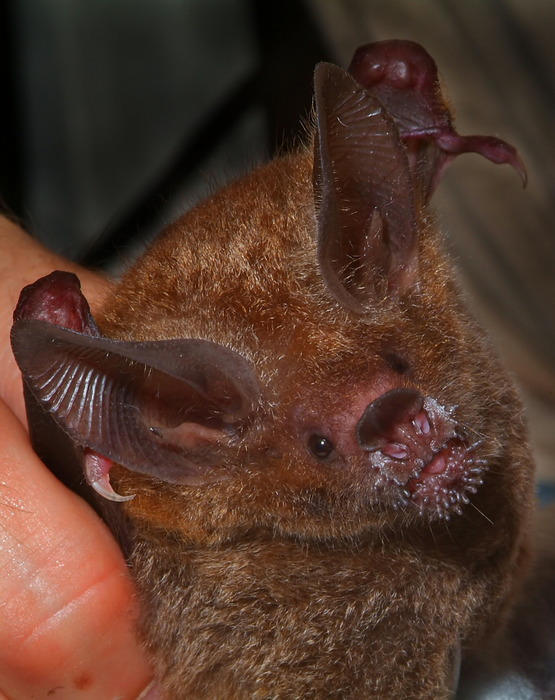Wild Bats Can Recognize a Phone’s Ringtone Four Years Later
The findings could help researchers understand more about the advantages and disadvantages of long-term memory in animals
:focal(640x384:641x385)/https://tf-cmsv2-smithsonianmag-media.s3.amazonaws.com/filer_public/76/89/76893705-5208-4130-878a-7bc7304349fa/b2ap3_large_frog-eating-bat-guerra_2400x1440.jpeg)
Wild bats trained to link a specific phone ringtone with a food reward can remember the sound for more than four years, new research suggests. This would put their long-term memory skills on par with other wildlife memory masters like monkeys and crows.
The findings, published last week in the journal Current Biology, may offer new insights into the cognitive abilities of bats, as well as how animals use their long-term memory in their daily lives.
Researchers caught 49 predatory fringe-lipped bats— Trachops cirrhosis, a medium-sized bat common in Central and South America—in the wild and trained them to fly toward a specific ringtone by rewarding them with food. These bats hunt by listening for the mating calls of several frog and katydid species. Cleverly, the bats can tell the difference between poisonous species and non-poisonous species just by their different sounds.
To train the bats, the scientists placed a baitfish snack above a speaker, then played the mating call of the male túngara frog, one of the bats’ favorite foods. As the study continued, the researchers gradually mixed in the sound of a ringtone—the three-note text message sound common on smartphones—with the frog call; eventually, the ringtone replaced the frog call entirely. In videos published in the paper, the bats can be seen visibly reacting, twitching and turning their ears, towards the repeated sound of the ringtone. The researchers also introduced three other ringtones that were not associated with a food reward, thus training the bats to recognize one specific ringtone.

For 11 to 27 days, the bats munched on at least 40 snacks each by flying to the speaker that played the ringtone. Researchers then microchipped and released the bats into the wild.
Over the next four years, the scientists recaptured eight of the wild bats from the initial study and put their memories to the test. The bats appeared to have retained most of their training and flew quickly toward the speaker playing the food-related ringtone; they were also able to discern between the ringtone and a new sound. (Many of the bats also flew toward one of the unrewarded ringtones from their initial training, however.)
By contrast, 17 untrained bats were also exposed to the ringtones and did not fly toward them, showing that the initial training was important to the re-captured bats’ behavior.
Frog-eating bats respond to ringtones from College of Natural Sciences on Vimeo.
Researchers are intrigued by these results because long-term memory has benefits and drawbacks for wildlife. For the bats specifically, it’s helpful for remembering what tasty prey sounds like, even when they hear their calls infrequently or only during certain seasons. Having a good long-term memory allows the bats to avoid time-consuming trial-and-error learning and allows them to take advantage of rare prey when it presents itself.
But long-term memory in general is also “metabolically expensive,” the researchers write in the paper, using up large quantities of energy and can also slow down decision-making; it can also get in the way of retrieving more recent memories. With this and other future studies, the scientists hope to learn more about when long-term memory is helpful to animals and when it’s more of a hindrance.
“I was surprised,” says May Dixon, an evolutionary and ecological biologist at The Ohio State University and one of the study’s authors, in a statement. “I went into this thinking that at least a year would be a reasonable time for them to remember, given all the other things they need to know and given that long-term memory does have real costs. Four years strikes me as a long time to hold on to a sound that you might never hear again.”
More broadly, the findings are significant because researchers just don’t have a good understanding of the long-term memories of animals in the wild. Many memory studies, such as those on dolphins, tortoises and sea lions, have involved animals living in captivity.
/https://tf-cmsv2-smithsonianmag-media.s3.amazonaws.com/accounts/headshot/SarahKuta.png)
/https://tf-cmsv2-smithsonianmag-media.s3.amazonaws.com/accounts/headshot/SarahKuta.png)